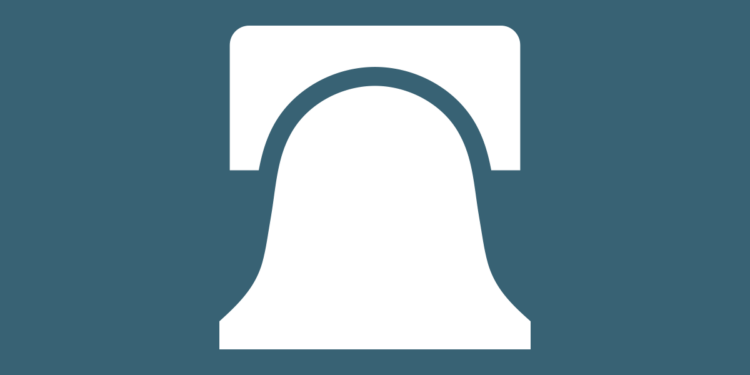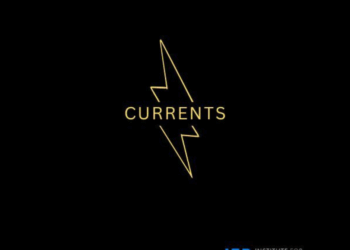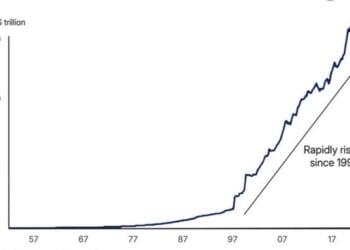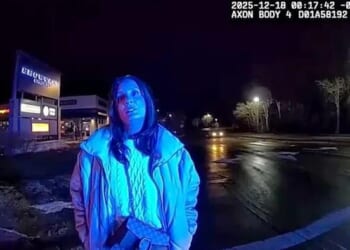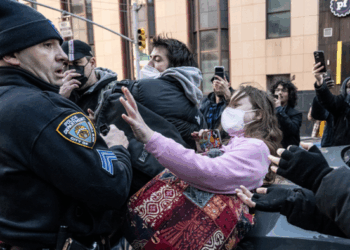Bottom Line
Congress has held 27 hearings to expose the severe harms that children face on social media and other online platforms. Many companies prey on vulnerable children through recommendation-based algorithms designed for engagement, often at the expense of user well-being. Addictive design features, such as dopamine-triggering notifications, rewards, and endless feeds, hijack children’s attention and shape their behavior to depend on these platforms for meeting their emotional needs. Despite demonstrated evidence of rising rates of anxiety, depression, and suicide, platforms continue to perform the bare minimum to restrict access, often relying on self-reporting of age.REF With children now using both personal and school-issued devices, access is effectively universal.
RECOMMENDATIONS
Several Members of Congress have now introduced reasonable solutions to some of these problems. America’s children and their parents need Congress to:
- Require parental consent for device application (app) downloads and establish standards for app ratings by passing the App Store Accountability Act.
- Raise and codify the age of social media users and prohibit personalized recommendation systems on accounts of children or teens. The Kids Off Social Media Act (KOSMA) would prohibit accounts for children under 13 and prohibit platforms’ recommendation systems for children under 17.
- Require K–12 schools and libraries to block social media on school networks and devices in order to receive federal telecommunications subsidies by passing KOSMA.
- Require social media companies to provide parental controls and prohibit addictive and deceptive design features for minors 16 and younger by passing the Kids Online Safety Act (KOSA).
- Update the Children’s Online Privacy Protection Act (COPPA) to fit the 21st century and raise the age of children protected under the law. COPPA 2.0 raises the age from 12 to 16.
- Require pornography websites to verify that their users are 18 or older by passing the Shielding Children’s Retinas from Egregious Exposure on the Net Act (SCREEN Act).
STATE OF PLAY
Following are proposed bills that Congress should pass.
App Store Accountability Act
- 118th Congress: In November 2024, Senator Mike Lee (R–UT) introduced the App Store Accountability Act (S. 5364), and in December 2024, Representative John James (R–MI) introduced it in the House (H.R. 10364).REF
- In 2024, Utah, Louisiana, and Texas each passed the App Store Accountability Act. Alabama, Kentucky, New Jersey, New Mexico, Ohio, South Carolina, South Dakota, and West Virginia introduced the bill in their respective state legislatures.REF
- 119th Congress: In May 2025, Representative James and Senator Lee reintroduced the App Store Accountability Act (H.R. 3149 and S. 1586). Representative Gus Bilirakis (R–FL) is as a cosponsor.REF
Kids Off Social Media Act (KOSMA)
- 118th Congress: In April 2024, Senators Brian Schatz (D–HI) and Ted Cruz (R–TX) introduced the Kids Off Social Media Act (S. 4213) and incorporated Senator Cruz’s Eyes On the Board Act.REF
- 119th Congress: In January 2025, Senators Schatz and Cruz reintroduced the Kids Off Social Media Act (S. 278).REF Cosponsors to date include the following Senators:
- 8 Democrats: Angela Alsobrooks (MD), John Fetterman (PA), Mark Kelly (AZ), Angus King (I–ME, caucuses with the Democrats), Chris Murphy (CT), Elissa Slotkin (MI), Mark Warner (VA), and Peter Welch (VT); and
- 5 Republicans: Katie Britt (AL), Ted Budd (NC), Ted Cruz (TX), John Curtis (UT), Dave McCormick (PA).
- In February 2025, the Commerce, Science, and Transportation Committee approved the bill by voice vote.REF
Kids Online Safety Act (KOSA)
- 117th Congress: Senator Richard Blumenthal (D–CT) and Senator Marsha Blackburn (R–TN) introduced the Kids Online Safety Act (S. 3663) in 2022. In July 2022, the Commerce, Science, and Transportation Committee approved the bill as amended by 28 to 0.REF
- 118th Congress: In May 2023, Senators Blumenthal and Blackburn reintroduced KOSA (S.1409).REF
- In July 2023, the Senate Commerce, Science, and Transportation Committee approved the bill as amended by voice vote.REF
- In April 2024, Representative Gus Bilirakis introduced companion legislation in the House.REF
- In September 2024, the House Energy and Commerce Committee approved the bill by voice vote.REF
- In December 2024, Senator Blackburn released a discussion draft of KOSA that incorporated changes from the House bill and edits based on Member and stakeholder feedback.REF
- 119th Congress: Senators Blackburn, Blumenthal, John Thune (R–SD), and Chuck Schumer (D–NY) introduced the December 2024 discussion draft of KOSA (S. 1748).REF To date, the bill has 67 cosponsors:
- 30 Democrats: Senators Alsobrooks (MD), Richard Blumenthal (CT), Chris Coons (DE), Catherine Cortez Masto (NV), Tammy Duckworth (IL), Dick Durbin (IL), John Fetterman (PA), Maggie Hassan (NH), Martin Heinrich (NM), John Hickenlooper (CO), Mazie Hirono (HI), Tim Kaine (VA), Mark Kelly (AZ), Andy Kim (NJ), Angus King (I-ME), Amy Klobuchar (MN), Ben Ray Luján (NM), Chris Murphy (CT), Jon Ossoff (GA), Gary Peters (MI), Jack Reed (RI), Brian Schatz (HI), Chuck Schumer (NY), Jeanne Shaheen (NH), Elissa Slotkin (MI), Mark Warner (VA), Peter Welch (VT), and Sheldon Whitehouse (RI); and
- 37 Republicans: Senators Banks (IN), Katie Britt (AL), Shelley Moore Capito (WV), Bill Cassidy (LA), Susan Collins (ME), John Cornyn (TX), Kevin Cramer (ND), Mike Crapo (ID), John Curtis (UT), Steve Daines (MT), Joni Ernst (IA), Deb Fischer (NE) Lindsey Graham (SC), Chuck Grassley (IA), Bill Hagerty (TN), Josh Hawley (MO), John Hoeven (ND), Jon Husted (OH), Cindy Hyde-Smith (MS), John Kennedy (LA), James Lankford (OK), Cynthia Lummis (WY), Roger Marshall (KS), Ashley Moody (FL), Jerry Moran (KS), Bernie Moreno (OH), Markwayne Mullin (OK), Lisa Murkowski (AK), Pete Ricketts (NE), James Risch (ID), Rick Scott (FL), Dan Sullivan (AK), John Thune (SD), Thom Tillis (NC), Tommy Tuberville (AL), Roger Wicker (MS), and Todd Young (IN).
Children and Teens’ Online Privacy Protection Act (COPPA 2.0)
- 117th Congress: Senator Ed Markey (D–MA) and Senator Bill Cassidy (R–LA) introduced the Children and Teens’ Online Privacy Protection Act (COPPA 2.0) (S. 1628) in 2021.
- In July 2022, the Commerce, Science, and Transportation Committee approved the bill as amended by voice vote.REF
- 118th Congress: In May 2023, Senators Markey and Cassidy reintroduced COPPA as COPPA 2.0 (S. 1418).REF
- In July 2023, the Senate Commerce, Science, and Transportation Committee approved the bill as amended by voice vote.REF
- 119th Congress: In March 2025, Senators Markey and Cassidy reintroduced COPPA 2.0 (S. 836) again. To date, the bill has 20 cosponsors:
- 14 Democrats: Senators Richard Blumenthal (CT), Maria Cantwell (WA), Martin Heinrich (NM), Mark Kelly (AZ), Andy Kim (NJ), Angus King (I-ME) Amy Klobuchar (MN), Ben Ray Luján (NM), Jeff Merkley (OR), Jon Ossoff (GA), Brian Schatz (HI), Chuck Schumer (NY), Peter Welch (VT), and Ron Wyden (OR); and
- 6 Republicans: Katie Britt (AL), Shelley Moore Capito (WV), Bill Cassidy (LA), John Cornyn (TX), Mike Crapo (ID), and Chuck Grassley (IA).
- In June 2025, the Senate Commerce, Science, and Transportation Committee approved the bill as amended by voice vote.REF
Two Combined Bills: Kids Online Safety and Privacy Act
- 118th Congress: In July 2024, the Senate passed the Kids Online Safety Act (KOSA) and the Children and Teens’ Online Privacy Protection Act in a combined bill titled the Kids Online Safety and Privacy Act, in a 91-to-three vote.REF
Shielding Children’s Retinas from Egregious Exposure on the Net Act (SCREEN Act)
- 117th Congress: In December 2022, Senator Lee introduced the SCREEN Act, largely modeled after Louisiana’s age-verification bill for pornography websites that became law in 2022 and went into effect in January 2023.REF
- 118th Congress: In November 2023, Senator Lee and Representative Mary Miller (R–IL) introduced the SCREEN Act (S. 3314 and H.R. 6429).REF
- 119th Congress: In February 2025, Senator Lee and Representative Miller reintroduced the SCREEN Act (S. 737 and H.R. 1623).REF
- 25 Republican cosponsors in the House (no Democrats): Robert Aderholt (AL), Brian Babin (TX), James Baird (IN), Stephanie Bice (OK), Sheri Biggs (SC), Josh Brecheen (OK), Elijah Crane (AZ), Pat Harrigan (NC), Andy Harris (MD), Mark Harris (NC), Diana Harshbarger (TN), Mike Kennedy (UT), Doug LaMalfa (CA), Carol Miller (WV), Barry Moore (AL), Blake Moore (UT), Ralph Norman (SC), Andrew Ogles (TN), Burgess Owens (UT), John W. Rose (TN), Austin Scott (GA), Keith Self (TX), Gregory Steube (FL), Jefferson Van Drew (NJ), and Randy Weber (TX).
- 3 Republican cosponsors in the Senate: Jim Banks (IN), John Curtis (UT), and James Lankford (OK).
In April 2024, the Subcommittee on Innovation, Data, and Commerce of the House Energy and Commerce Committee held a hearing titled, “Legislative Solutions to Protect Kids Online and Ensure Americans’ Data Privacy Rights.” Former director of The Heritage Foundation’s Tech Policy Center, Kara Frederick, testified. KOSA, the Children and Teens’ Online Privacy Protection Act, and the SCREEN Act were part of the hearing agenda.
In June 2025, the Supreme Court upheld Texas law H.B. 1181, which requires pornography websites to verify that their users are 18 or older. The case was the Free Speech Coalition, Inc. v. Paxton and was decided six to three. As of October 2025, 25 states have passed age-verification laws for pornography websites. The Supreme Court’s decision affirms that Texas’ and similar laws across the nation—and, significantly, the SCREEN Act—are constitutional means of protecting minors from online sexual material.
ANALYSIS
App Store Accountability Act
Minors generally cannot enter enforceable contracts, except for limited necessities, such as food or lodging in some states. Yet most online applications (apps) require users to accept complex terms of service and privacy agreements—contracts that minors cannot legally execute.REF This current regime excludes parental or guardian consent and “exposes children to privacy risks, financial harm, and dangerous digital environments.”REF Additionally, app developers provide discretionary ratings that are unsuitable for young children, and ratings vary between app stores. For example, several dating apps that require users to be 18 or older rate their apps as 16+ in the Apple Store.REF AI Chatbots are rated from age four-plus to 18-plus in the Apple Store. Before July 2025, 17+ was the highest rating Apple provided.REF The Google Play Store provides ratings from “E” (Everyone) to “Mature 17+”; Apple rates Meta AI as “13+” but Google Play rates it as “E.”REF
The App Store Accountability Act closes these loopholes by requiring all minors to obtain parental consent for each download and by streamlining accurate and transparent age ratings. App stores must securely share age categories upon verification with apps in order to prevent children from downloading apps rated above their age. To comply with the bill, app stores may require minors to link their accounts to a verified parent or guardian account; such systems already exist, and the stores could send a push notification to parents when their child requests to download an app.
Critics question whether requiring parental consent for each download is too burdensome, but this concern is overstated. The age-verification and parental-consent compliance burden rests on app store operators. The bill restores parental authority over which apps their children use, and aligns digital access with long-standing contract principles, including that contracts with children are not enforceable—regardless of the type of app. Furthermore, parents may approve multiple apps when setting up their child’s device and approve or deny subsequent requests upon receiving a notification.REF
Kids Off Social Media Act (KOSMA)
Social media platforms, through their terms and conditions, usually require users to be 13 or older in order to avoid compliance with the Children’s Online Privacy Protection Act (COPPA) of 1998. This law established regulations on commercial website operators’ collection of personal information from children under age 13, such as requiring parental consent. KOSMA codifies that users must be 13 or older to use these platforms.
A Common Sense Media report found that 68 percent of American children under age 13 use social media.REF An investigation led by New Mexico’s State Attorney General in December 2023 found that Meta knowingly allowed users under 13 to maintain accounts.REF Even with an abundance of evidence, COPPA enforcement is virtually nonexistent. KOSMA strengthens COPPA enforcement by requiring social media platforms to terminate existing accounts of users it knows to be under 13.
Recommendation-based algorithms are arguably the most problematic design feature of social media. By collecting personal user data the platform is able to build a profile and provide content based on behavioral patterns on and off the platform by the user. These design features drive user addiction, disproportionately harming children who are less physiologically able to resist. KOSMA prohibits social media platforms from using these systems for teens under 17.
Title II of KOSMA updates the Children’s Internet Protection Act (CIPA) of 2000 to include social media platforms. This existing law requires K–12 schools and libraries to block or filter online access to obscene or harmful content on their Internet networks and devices in order to receive telecommunications subsidies through the Federal Communications Commission’s (FCC’s) E-Rate program. The program subsidizes up to 90 percent of telecom costs, and in 2023, the FCC disbursed $2.4 billion through this program.REF School is for education, and scrolling social media feeds or watching viral videos undermines this interest. This provision places reasonable requirements on recipients of federal funds and takes an important step to protecting children online while they are in school.
KOSMA could go further than it does. Increasingly, child advocates and policy experts say that social media should be prohibited entirely for children under 16 or 18. The Heritage Foundation would support the policy merits of this change. At least 10 states have passed laws that raise the age minimum of social media and/or require parental consent, further demonstrating public support for increasing safeguards for teens online.REF Additionally, the bill includes a carveout for YouTube Kids. While this platform is billed for children, adult content can be easily accessed and promoted on it. Common Sense Media found that 27 percent of videos watched by kids eight and under on YouTube Kids are intended for older audiences.REF The Heritage Foundation would support removing a carveout for YouTube Kids.
Kids Online Safety Act (KOSA)
KOSA would require social media platforms to provide parental controls and disable addictive design features, such as algorithmic recommendations—that can promote inappropriate content—for accounts assigned to children 16 and younger. The bill would hold platforms accountable when they design and operate feeds that promote sexual exploitation, physical violence, suicidal behavior, and illegal substances to minors. While the bill would prevent social media platforms from promoting inappropriate content, it would not prevent kids from freely searching for content on the platform.
KOSA allows covered users to opt out of a personalized recommendation system or to limit categories of recommendations. It would require platforms to provide easy-to-use tools to allow parents to impose limits on notifications, use of their location information, who can contact their children through the platforms, and the amount of time they spend on an app. KOSA empowers parents by giving them the final say in their child’s privacy and account settings. Platforms would be required to provide an accessible reporting process for claims of abuse and to respond to such claims within an established time frame. Many users say that current reporting processes are difficult to navigate, and the platforms often do not respond or resolve the issues reported. KOSA requires platforms to provide accessible and easy-to-use means for teens and their parents to report harms to minors.REF
The updated 2025 Senate draft sharpened KOSA’s provisions to prevent government overreach and platform censorship, as well as to bolster parental tools and consent. The revised version added a provision forbidding government entities from enforcing the duty of care legal obligation “based upon the viewpoint of users expressed by or through any speech, expression, or information protected by the First Amendment to the Constitution of the United States.” Another First Amendment concern raised by some critics of the bill is that the KOSA would incentivize platforms to overcomply and mark political content as anxiety or depression-inducing. The bill’s authors addressed that concern by clarifying that platforms were to create design features that prevent depressive and anxiety disorders that are related to compulsive usage, and the design feature—not the content—is a contributing factor. Take, for example, design features like infinite scrolling, auto play, push alerts, and personalized recommendation systems. These features do not affect what a user may post; rather, they focus on keeping a user engaged and even addicted to the platform.
The 2025 KOSA draft incorporated many changes from the version that passed committee in the House in 2024, including no longer ceding authority to the controversial Diagnostic and Statistical Manual of Mental Health Disorders, eliminating the government study on social media harms, and tightening the size and scope of the Kids Online Safety Council with appointments to be selected by Members from both chambers, both parties, and the Administration. The updated text expressly forbids platforms from conducting market or product-focused research on users it knows are children under 13. The revised KOSA requires platforms to obtain verifiable parental consent for research for children older than 13. This robust measure provides parents with greater autonomy over how Big Tech companies may use their children’s information.REF
Children and Teen’s Online Privacy Protection Act (COPPA 2.0)
The Children’s Online Privacy Protection Act (COPPA) of 1998 was written and signed into law in the early years of the Internet and before social media, smartphones, and apps. The law is in great need of updates. COPPA 2.0 brings the law into the 21st century by adding new types of technology, such as online applications or mobile applications, geolocation information, voice prints, retina imagery scans, facial templates, and DNA information into the covered definitions. It also recognizes that teens are also in need of protection, not only children 12 and younger.
The bill prohibits the collection of data on minors and teens under age 17 for targeted advertising, requires various notices for data collection and use, provides teens and parents with the right to request deletion or correction of personal information, and requires compliance if a platform has “actual” knowledge, or knowledge “fairly implied on the basis of objective circumstances,” that a user is a minor. The latter is a new standard that closes the loophole that allows platforms to ignore evidence that minors are on their platforms simply because the user falsely signed up as an adult user. Currently, COPPA only places limitations on the personal data platforms collect for users under 13. COPPA 2.0 requires the companies to obtain user consent before collecting personal information from users between age 13 and 16.
Some critics of COPPA 2.0 say that the bill does not go far enough because it continues to allow online platforms to essentially treat teens 13 and older as digital adults. They say that because of contract laws, as asserted for the App Store Accountability Act, parents should have to provide consent for their teens until age 18 for any data collection.REF When COPPA 2.0 was first introduced in 2021, requiring additional compliance from online companies was seen by many as burdensome and adding requirements up to age 18 may have been less accepted. Numerous congressional hearings, investigative reporting, countless lawsuits against platforms, and the popularity of bestseller The Anxious Generation suggest that the Overton window has moved and that teenagers ages 13 to 17 are also deserving of the same privacy protections afforded to kids under 13. COPPA 2.0 should be amended to require parental consent and other data collection limitations for all teens 17 and younger.
Shielding Children’s Retinas from Egregious Exposure on the Net Act (SCREEN Act)
Nearly 80 percent of children between the ages of 12 and 17 have unintentionally come across pornography, and more than 50 percent of them actively seek it out. Even among younger children—those between nine and 11—37 percent have seen porn.REF Frequent exposure to pornography at a young age cultivates unhealthy views of sexuality and an inclination toward violent behavior. Children with heavy exposure may learn to perceive exploitation, coercion, and sexual abuse as normal. This deception has significant consequences on their views of and behavior toward the opposite sex, the same sex, and their beliefs about what constitutes a healthy relationship.REF Children’s brains are developing, and exposure to pornography unnaturally influences arousal templates in the brain. This exposure establishes harmful, foundational sexual scripts for life and changes the neuroplasticity by remodeling the brain’s learning and reward pathways. Chronic porn consumption can affect academic performance, hinder working memory, lead to poor decision-making, and increase addictive behaviors.REF It can also impede marriage and family formation later in life.
Until 2023, protections for children from online exposure to pornography have relied entirely on parents and schools, the latter of which are required by CIPA to block and filter pornography on school networks and devices. Blocking and filtering software, however, has proved to be insufficient in preventing online access to pornography, and not everyone utilizes the software on every device a child may access. Furthermore, even the most well-intentioned parents do not monitor every second of their child’s online activity.REF In 2023, Louisiana became the first state to require pornography websites to verify that their users were 18 or older. Since then, 24 other states have passed laws requiring pornography websites to perform age verification to ensure their users are 18 or older. In June 2025, the Supreme Court decided in a landmark six-to-three decision to uphold the Texas age-verification law H.B. 1181. In Free Speech Coalition, Inc. v. Paxton, the Court declared that “no person—adult or child—has a First Amendment right to access [obscene] speech without first submitting proof of age.” The Court determined that the law only incidentally burdened the protected speech of adults and that, therefore, it triggered and survived intermediate scrutiny. When 95 percent of teens have access to a smartphone, online pornography is literally at their fingertips.REF
Children nationwide need to be shielded from pornography. The SCREEN Act establishes clear data-security requirements, parameters to ensure that the websites or third-party age verifiers only collect minimal data that is necessary to verify a user’s age, and requirements for data deletion. The bill subjects the IP addresses of all users on porn websites to the age-verification measure. An IP address is the unique numerical identifier and geolocation of a device connected to the Internet. Technology such as proxies and virtual private networks (VPNs) can be used to manipulate an IP address to make a device appear as if it is in a different location (such as a different state or country, perhaps one without age verification). The bill subjects those accessing porn websites while using such proxies and known VPNs to the age-verification measure as well. This will make it harder for those who alter their real IP addresses to circumvent the age-verification requirement—an issue that some have identified as a gap in state-level legislation. The bill directs the Federal Trade Commission (FTC) to issue guidance to assist websites covered by the law in complying with the law. It also directs the FTC to enforce the law, treating any violation as an unfair or deceptive act or practice under Section 18 of the Federal Trade Commission Act.REF
Annie Chestnut Tutor is Policy Analyst for the Center for Technology and the Human Person at The Heritage Foundation.
RELATED MATERIALS
- Annie Chestnut Tutor, “Parents’ Survey: Online Filters and Blocking Software Still Only Work Sometimes,” Heritage Foundation Backgrounder No. 3940, October 29, 2025.
- Annie Chestnut Tutor, “Age Verification: What It Is, Why It’s Necessary, and How to Achieve It,” Heritage Foundation Backgrounder No. 3895, March 6, 2025.
- Annie Chestnut Tutor, “Time for States and Congress to Follow Texas in Protecting Children from Online Porn,” Daily Signal, July 30, 2025.
- Annie Chestnut Tutor, “The Kids Online Safety Act Prioritizes Kids and Free Speech,” Daily Signal, December 11, 2024.
- Annie Chestnut Tutor and Mark Meador, “Don’t Let Empty Objections Stop the Kids Online Safety Act,” Heritage Foundation Commentary, August 6, 2024.
- Annie Chestnut Tutor, “Congress: Stop Expecting Big Tech to Protect Kids Unless You Make Them,” Daily Signal, January 30, 2024.
- Annie Chestnut Tutor, “The Need for Federal Legislation Requiring Age Verification for Porn Websites,” Daily Signal, December 19, 2023.

